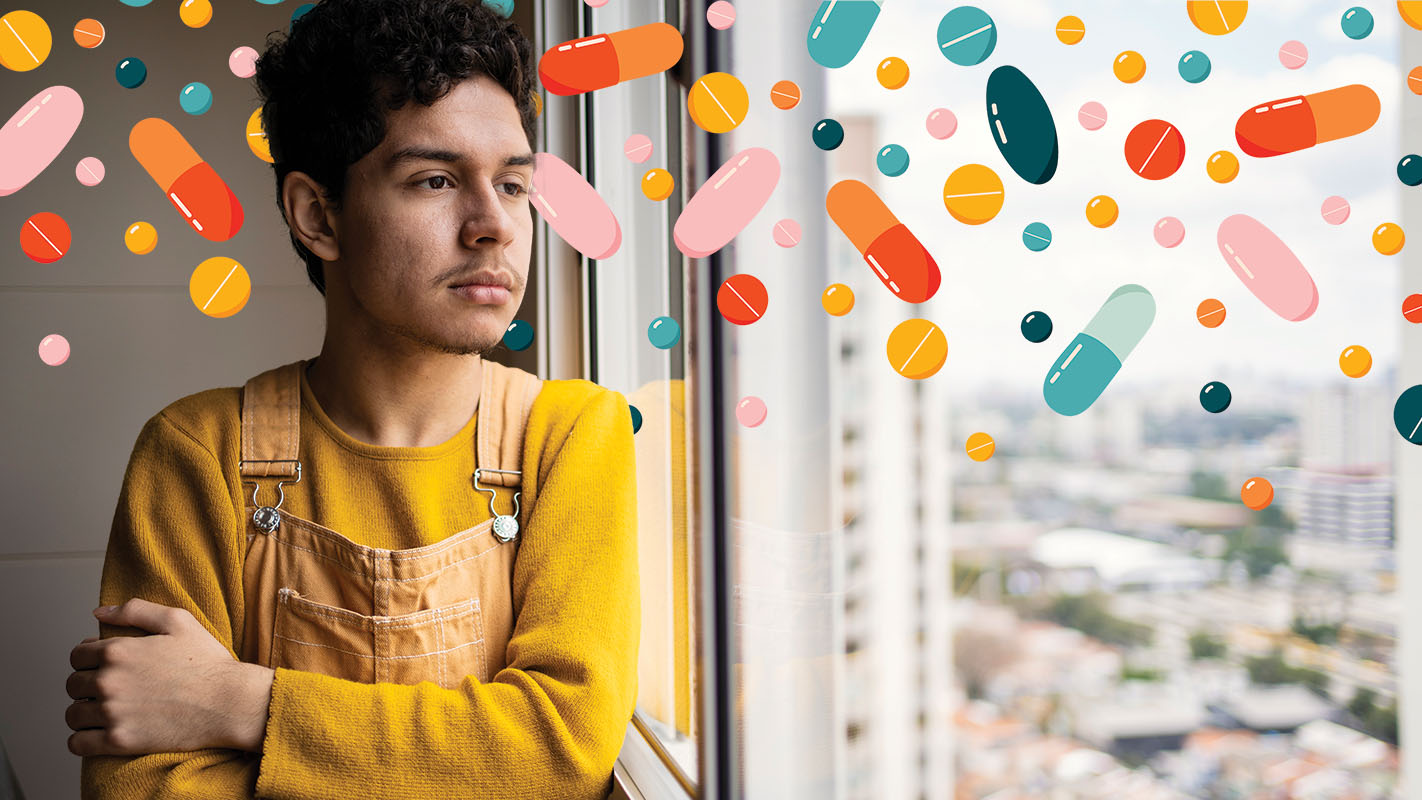
By: Jennifer McMillen Smith, LISW-S, HIV Social Worker at MetroHealth Medical Center and medically reviewed by Ann K. Avery, MD, Infectious Disease Physician at MetroHealth Medical Center
Let’s debunk a myth and straighten something up quickly: addiction is a disease, not a choice! The American Society of Addiction Medicine (ASAM) says it’s way more complicated. Your brain chemistry changes with addiction. It’s not a lack of willpower…it’s science. 🔬
If you’ve found yourself asking, ‘do I need to go to rehab?’, this article is here to help you figure that out! Understand that addiction is a progressive disease. That means it gets more serious the longer it’s left alone. If you were diagnosed with something like asthma, you would get treatment instead of leaving it alone, right? The same is true for addiction. You don’t need to hit rock bottom first: You can get help now. 🫂
Using the DSM-5 to assess addiction
Just like with any scientific field, there’s a lot of study that’s gone into addiction.
Many doctors recognize the difference between substance addictions, like to alcohol or other drugs, and non-substance addictions, involving behaviors, such as gambling. Both substance and non-substance addictions impact one’s mental health and physical health.
Doctors will use the guidelines in the DSM-5 manual to diagnose addiction problems. They’ll look for three or more of the 11 signs of substance use disorder (SUD), which is classified as a mental health condition. From here, they’ll recommend options for treatment.
What are the signs of substance addiction?
If you meet some (or even most) of the criteria below, don’t panic! Addiction is treatable, and there’s help out there. 💗
Let’s start with some obvious signs of addiction:
- Strong cravings for the substance or behavior
- New health conditions
- A large amount of time spent using the substance
- Failing to stop, even if you want to
- Withdrawal symptoms
And then there are a few more subtle ones:
- Losing interest in hobbies
- Needing more of the substance to get the same effects (a higher tolerance)
- Avoiding important tasks, like work and medical appointments
- Putting yourself or others in dangerous situations
- Becoming socially isolated—not spending as much time with friends and family
Additionally, many researchers believe that addiction causes changes to the brain. So, that means someone with substance use disorder might have a brain that works a little differently than someone without the condition. It’s also possible that certain individuals might be more likely to develop substance use disorder because of differences in the way their brains work.
Just to drive the point home… addiction isn’t a choice and having conversations about it is important. Addiction is stigmatized, just like HIV. Talking about the science behind addiction is one way to reduce the stigma.
So, do I need to go to rehab?
Just like with any condition, the best thing to do for addiction is to find a treatment plan. That’ll look different for everyone; some people need to do a detox program or stay in a treatment center for a little while. Others might attend support groups, go to therapy, or take medications that help manage the symptoms of substance use disorder. The most important thing is to recognize you need help and seek it out. You don’t have to do it on your own! 🤗
Recovering from an addiction is a multi-step process, involving:
- Admitting you’re addicted: You can’t heal if you don’t think something is wrong.
- Speaking with a doctor: They can help assess what type of addiction you have and the best way to avoid things like withdrawal.
- Leaning on therapy: Having a therapist that specializes in addiction will help keep you on your treatment plan and will be there for you through every step of the process.
- Reaching out to a treatment center: Contacting a rehab or addiction treatment center will put you in touch with specialists that can teach you how to cope, encourage you to seek out therapy, and get supervised, safe help.
- Change the environment: Staying away from people, places, emotions, or other things related to the addiction often helps with recovery.
- Find a support network: Consider joining peer-support rehab groups, reach out to supportive family and friends, gather a team of specialists around you that can monitor your progress, and otherwise create a network that will increase your chances of success.
Entering recovery is a great way to do many of those things at once. It changes your environment, surrounds you with supportive, trained people, and treats substance use disorder.
Use the SAMHSA helpline
If you’re asking ‘do I need to go to rehab?’, it might help to get a clear answer with the Substance Abuse and Mental Health Services Administration (SAMHSA) helpline. ☎️ It’s a confidential 24/7/365 helpline. Call them to get referrals to support groups in your area and access to local treatment centers. You can reach them at 1-800-662-HELP, and they have an online treatment locator as well.
Celebrate your victories
Recovering from substance use disorder is a one-day-at-a-time process. Every day of sobriety is a victory, and you should celebrate that. 🎉
Use tools like the Positive Peers app’s wellness tracker to feel those little victories. It goes a long way to check off another day where you won. The Positive Peers app also lets you know about resources that’ll help you take each day head on, like:
Even reading this article is a win. 🥳 Be proud of yourself, don’t be afraid to get the help you need, and reach out to those that love you. You deserve to overcome this disease so that you can have a happy, full life. ❤️